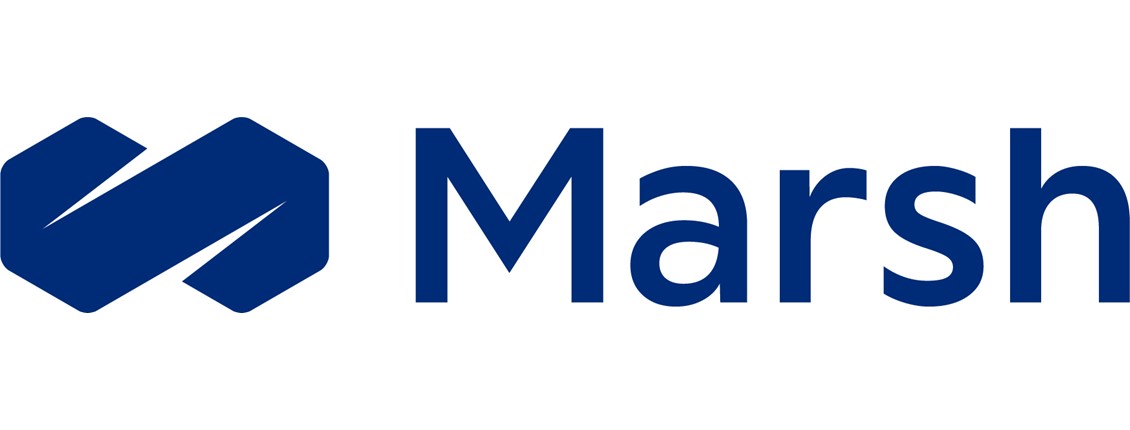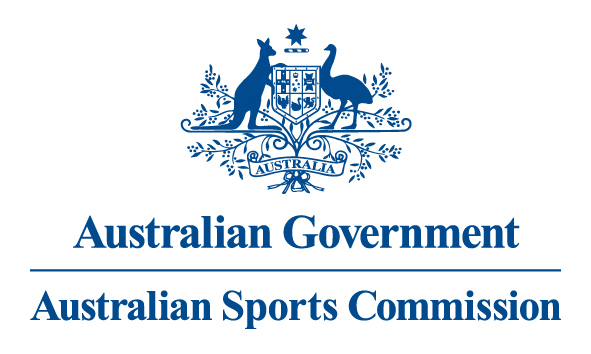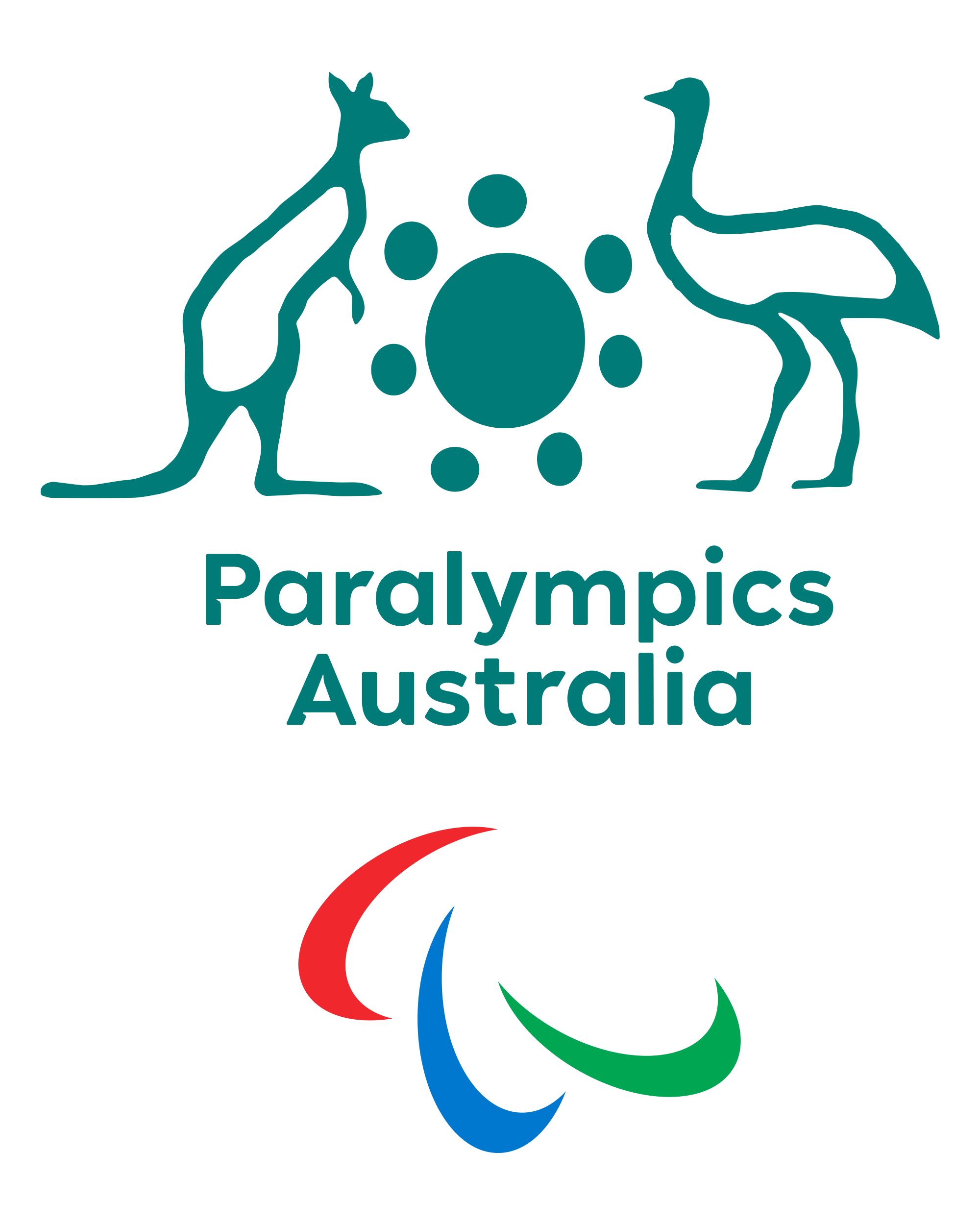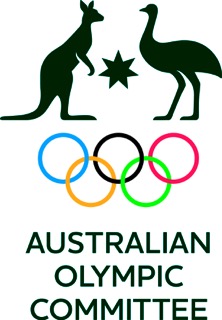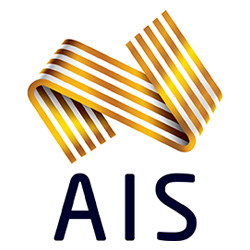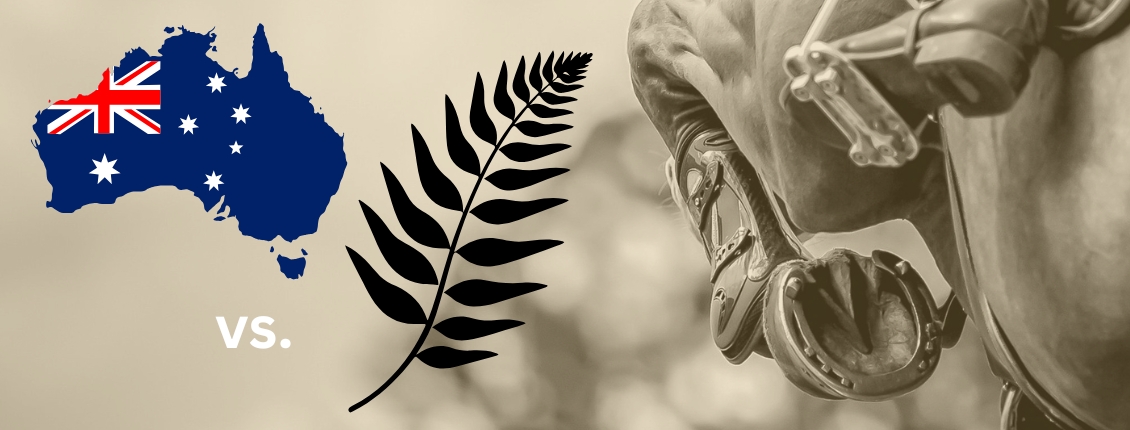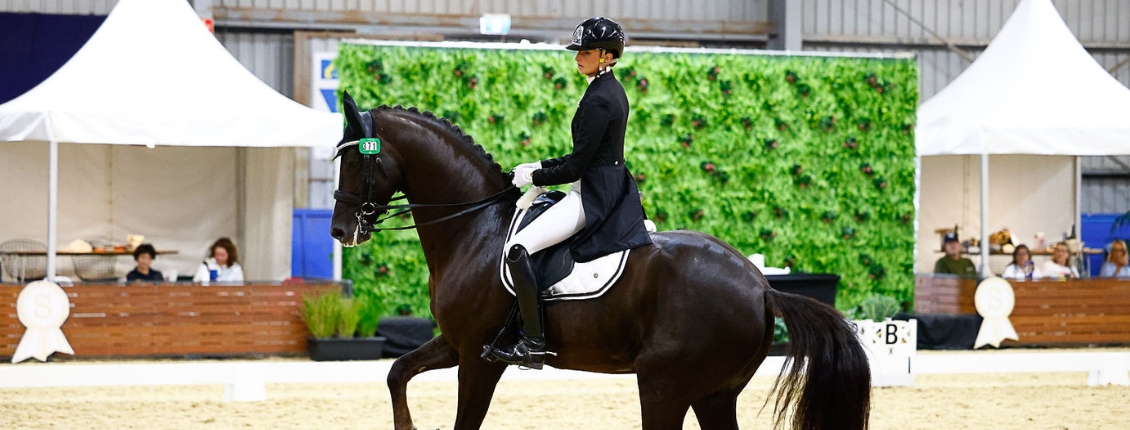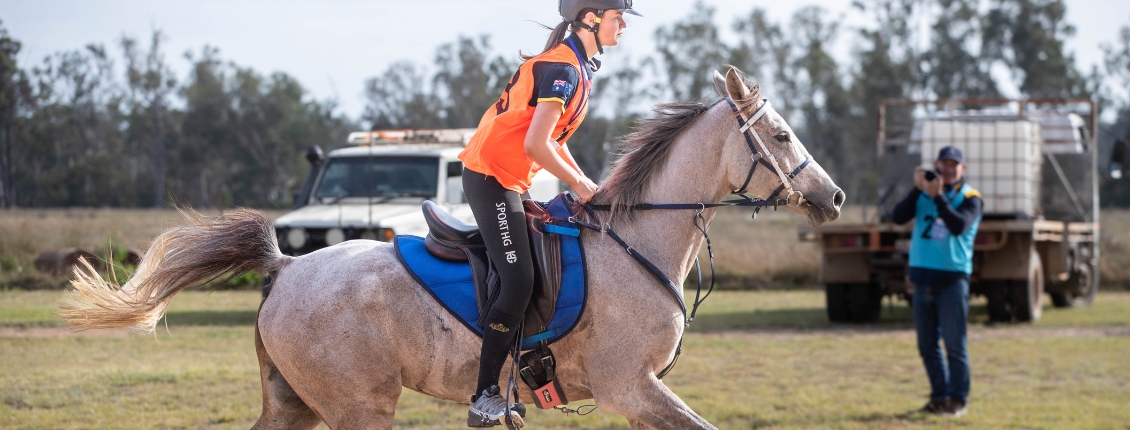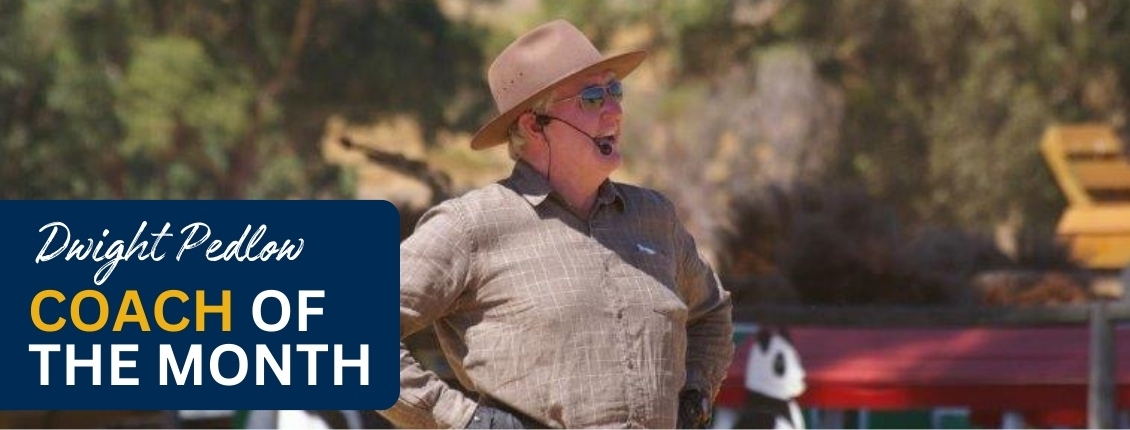
Coach of the Month - December 2023
Equestrian Australia pays tribute to the dedication and knowledge that exists within the equestrian coaching community and acknowledges the role of coaches in the development, integrity and sustainability of the sport. Our coach of the month for December 2023 is Dwight Pedlow from Western Australia and he shares his story with our Members.
EA asked Dwight to tell us how he got his start with horses and he said, “Growing up in Western Australia gave horse mad kids like me and my sisters wonderful opportunities to ride and mix it with like-minded friends. My elder sister started riding when I was about 8 and I started at age 10, firstly on riding school horses and when I was 12, I got my first horse.”
“In the early days our family lived in a suburb of Perth, my two sisters had horses, my mother and father had a couple of racehorses, and I also had a horse. It did not take long for the horse numbers to grow and when I was 14, we moved to a rural property at Serpentine an hour south of Perth where rural life allowed us all to pursue our love of horses and we had many happy times together.”
”As a young rider, I had a penchant for learning and was inspired by the coaches that I was fortunate to have lessons with, and to this day appreciate the support and guidance I received from all of them. I was encouraged to obtain my EA Coaching accreditation, so at 18, I obtained my EA Level 1 General, which enabled me to coach at the Serpentine Horse & Pony Club where I had been member at for many years. Jan Goodwin was the chief coach and I learned so much from her. I still make a point of returning to the club each year for the annual awards night, and donate a trophy in honour of my mother who was a life member of the Club.”
EA asked Dwight if there is a particular EA Coach who influenced his pathway in the sport? “Without a doubt I owe my coaching and knowledge in the most part to Nadine Merewether, without her support and willingness to share her many insights and vast experience, I would not be the coach that I am today. In WA, we are fortunate to have a very strong equestrian coaching community made up of people who have gone through a traditional and thorough education process and work cooperatively to improve equestrian sport. Coaches like Roz Tippet, Gail Simms and Rebecca Thomas are acknowledged for their enormous contribution. Nearly 10 years ago I brought Andrew Hoy to WA to conduct a clinic and the feedback from those who attended was extremely positive. As one of the attendees, I learned a great deal from the Eventing knowledge that Andrew passed on.”
“From the early days, I was drawn to a life with horses and horse people and I have followed my dream. I am now an EA Level 2 General Coach and Coach Educator and get a great deal of satisfaction (and positive feedback) from my work coaching at Adult Riding Clubs and for the private students who tap into my specialist interest in dressage and eventing. I aim to inspire my students to be positive and enjoy riding, as I believe that it is important for riders to keep in mind that we work with wonderful equine partners and are responsible for their physical and mental welfare. The training must be systematic and thorough. Horses are the common interest, how lucky are we?”
We asked Dwight to share some of his highlights and achievements in equestrian sport, he answered. “Competing at my first Australian National Dressage Championships in the Elementary/Medium classes at age 21 was a memorable time, and placing in all but one test was “icing on the cake.” A special time was the reward for effort involved in the study and practical assessment that went into obtaining my EA Level 2 qualification when I was just 21. I was selected to attend a fast-track clinic with the highly respected coach educators, Colleen Brook and George Sanna. Another special highlight was winning WA’s first Advanced ODE at Newdale.”
EA was keen to learn how Dwight prepares for a personal-best performance and what helps him to keep calm when he is feeling down or under pressure? He said, “As a rider, horse trainer, and coach, control of nerves is a big part of success. When riding, I control my nerves by reminding myself to look up and around and think how lucky I am to work with horses. When helping riders to do their best in competition, I go back to my own successful strategies and encourage them to be prepared, then to look up, breathe and take in the positives of being out with their horse. Negativity robs the calm needed for a good performance and competition day is not the time for trying new things. Practice must be done in the weeks leading up to the event.”
“I have a saying that I often use … “the microwave syndrome” … this describes some riders who expect results in 60 seconds or 6 minutes. They lose sight of the fact that riding takes hard work and time, whether that is 6 weeks, 6 months, or the 6 years required to set goals and systematically work to a plan that will help achieve results.”
About coaching Dwight says, “I believe that a good coach will have developed finely tuned skills of observation, as we must be able to see the good and bad, then formulate strategies to help each combination to work more effectively and take advantage of the positives. A good coach must have excellent communication skills and be able to explan what they see and what changes are needed, then wrap this up with positive and encouraging instruction, treating every client as a peer.”
Dwight said, “It can be challenging when riders get caught up with the terminology and theory regarding what their horse should or should not be doing when what is really needed is that they learn to FEEL. This comes down to realising the more “bum-hours in the saddle” the better the rider will be. Nothing beats experience and it is my job to translate into words what the rider is feeling and how they can make changes that will improve communications with their horse. I teach in a way that encourages riders to keep liking and respecting the horse, as riding must be a partnership.”
“The role of most EA coaches/coach educators is twofold, to teach riding and also mentor students who have ambitions of making horses a full-time job. The coaching accreditation system is there to support a career in the industry and there are many experienced coach educators who can offer advice and help students to identify the best career pathways.”
“When we first married, my wife and I established an equestrian property known to many as the “Swan Valley Equestrian Park”. The business model used diversification to ensure success and we held events, clinics, offered agistment and I coached both on the property and travelled to clients and clubs. Currently we have the property leased out and I am exclusively a travelling coach, covering the Swan Valley and surrounding areas.”
We asked Dwight if he and his family had hobbies or interests outside horses and teaching and he said, “I am not sure if you would call my other activities work or hobbies, but I enjoy working around our home and helping my wife with her amazing vegetable garden. We are lucky enough to have a wake boat and I love wake surfing and do this as often as possible with my two young adult children and our friends.”
EA was keen to have Dwight comment on his decision to make horses a career and he enthusiastically said, “When considering my answer, I will take the liberty of stealing a great saying … “If you love what you do, you will never have to work a day in your life!”. Being around horses started as a way of having fun, and is still what I love to do. As a coach, I have to follow the rules and guidelines, but always try to keep it relaxed, fun and fulfilling. I would encourage people like the young-me to follow their dream and do the study required to become an equestrian coach.”
“I thank Equestrian Australia for allowing me to share my story and hope that the 2024 Olympic Year brings Australian success and helps to grow the fan base of equestrian sport.”

